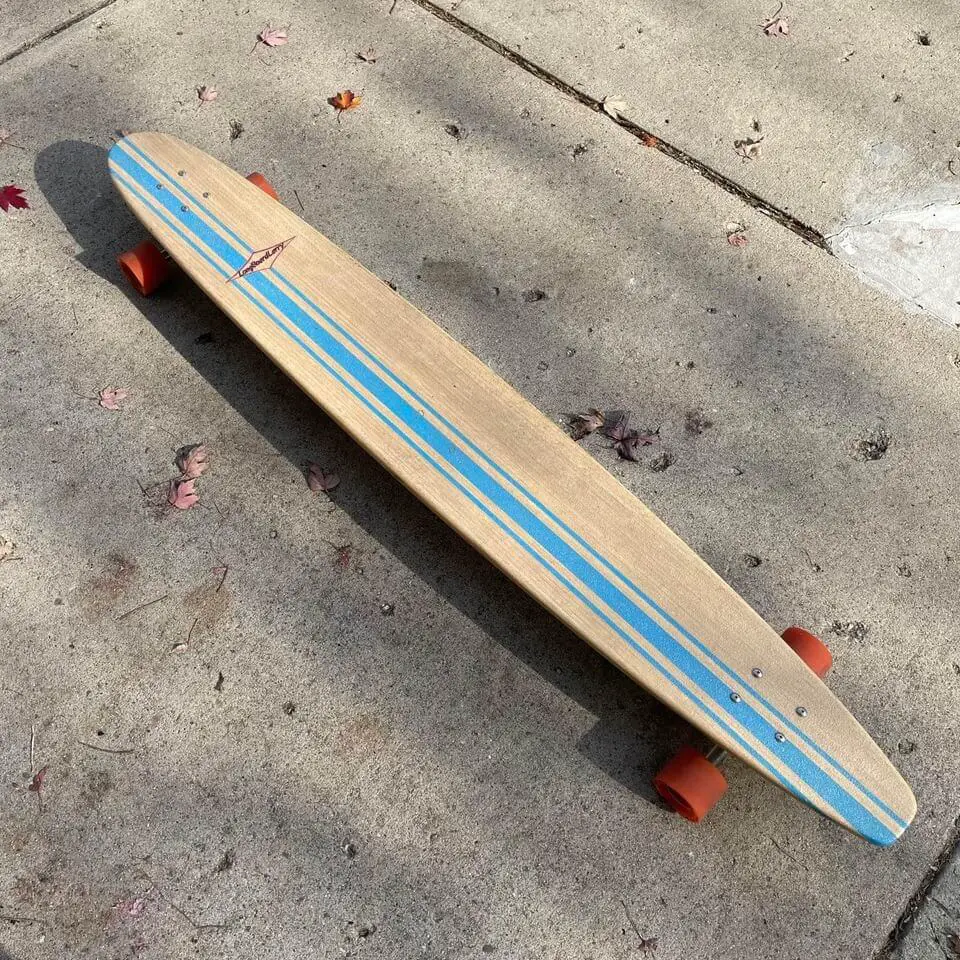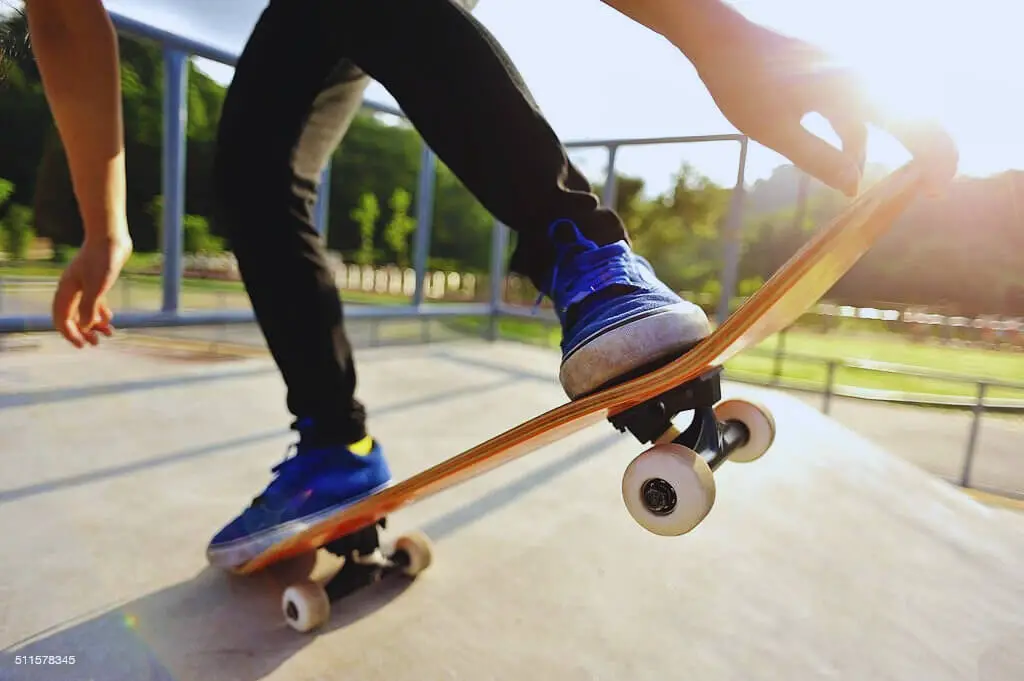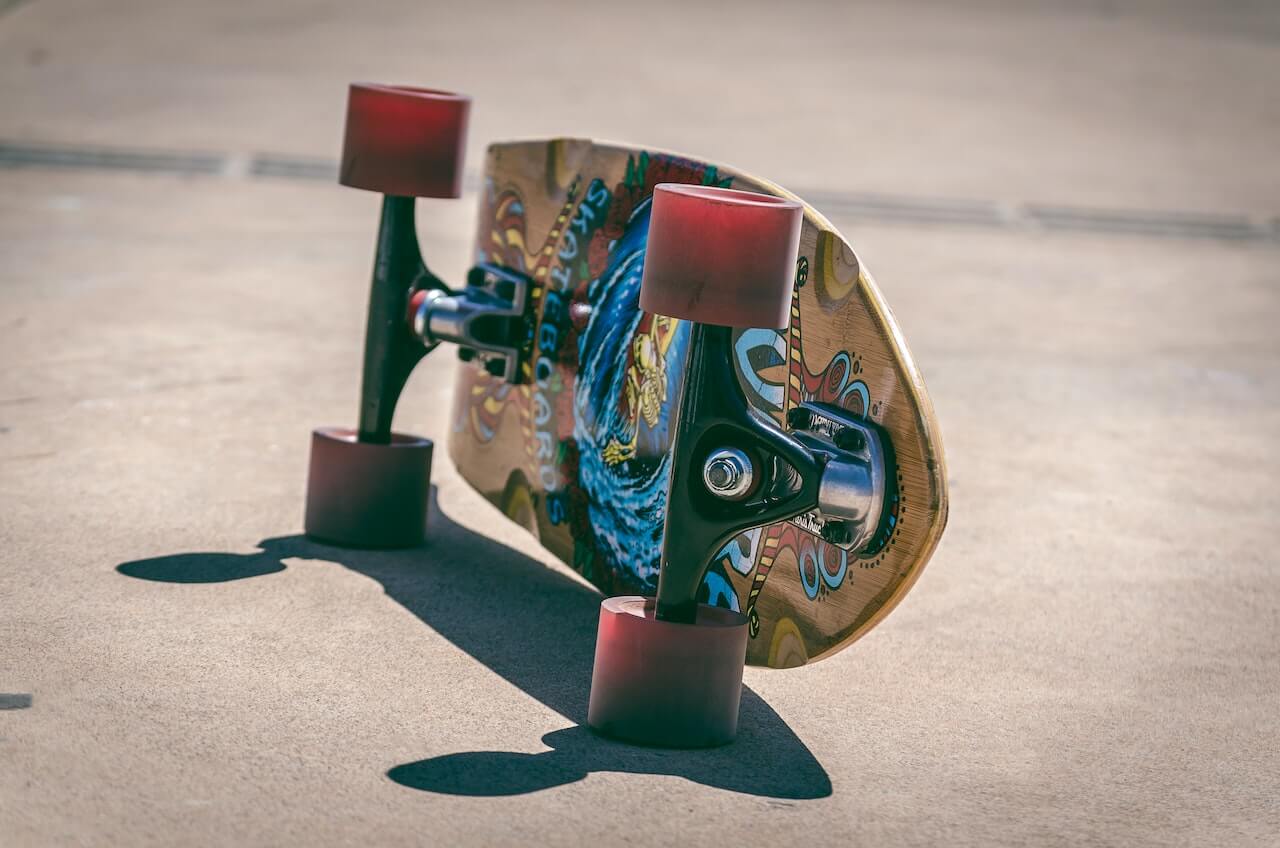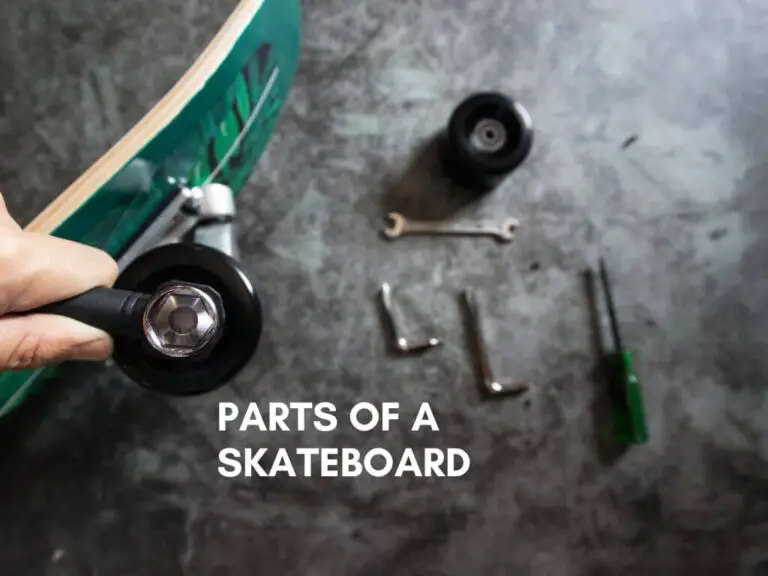In recent years, bamboo has surged in popularity as a material used in everything from furniture to bicycles—and now, it’s making waves in the world of skateboarding. But as a skateboarder, you might be wondering: Are bamboo skateboard decks good? If you’ve been curious about this eco-friendly alternative to traditional maple wood decks, you’re not alone.
This article will dive deep into bamboo skateboard decks, exploring their benefits and drawbacks to help you decide if they’re worth considering for your next ride. We’ll cover everything from their performance, durability, and weight, to their environmental impact and cost. Whether you’re an eco-conscious skater or simply looking for something new, you’ll get all the information you need to make an informed choice.

The Rise of Bamboo Skateboard Decks
Bamboo has become a favorite material for a wide range of products due to its sustainability and versatility. In recent years, it has made its way into the skateboarding world as a viable alternative to the traditional maple decks that have long dominated the market. But why bamboo?
Sustainability Angle
One of the biggest draws of bamboo skateboard decks is their environmental benefits. Bamboo is a rapidly renewable resource that grows much faster than hardwoods, including maple. While maple trees take decades to mature, bamboo can grow to full height in just a few years—making it an incredibly sustainable material for skateboard production. By choosing bamboo, skaters can reduce their environmental impact and contribute to the preservation of forests. For skaters who care about sustainability, bamboo decks are a game-changer.
Innovation in Skateboarding Materials
Skateboarding, like many other industries, is constantly evolving. As consumers become more conscious of environmental issues, brands have started to look for alternative materials that can match the performance of traditional wood while being more sustainable. Bamboo is one such material that offers not only eco-friendliness but also excellent performance characteristics. As a result, many skateboarding companies are now offering bamboo decks alongside their maple counterparts.
What Are Bamboo Skateboard Decks?
So, what exactly is a bamboo skateboard deck, and how does it differ from the more traditional maple decks?
Construction and Materials
Bamboo skateboard decks are typically made by laminating multiple layers of bamboo together, often combined with other materials like fiberglass for added strength and flexibility. The bamboo itself is much lighter than traditional maple wood, which gives the deck a unique feel. Bamboo’s natural properties—strength, lightness, and flexibility—contribute to a different ride experience compared to a maple deck.
Eco-Friendly Option
Unlike maple, which requires the harvesting of mature trees, bamboo is a grass that grows quickly and can be harvested more frequently without causing damage to the environment. This makes bamboo an attractive choice for skaters looking for a more eco-friendly option. The reduced environmental impact is one of the strongest selling points for bamboo decks.
Pros of Bamboo Skateboard Decks
Bamboo skateboard decks come with several advantages, which make them appealing to a variety of riders. Let’s take a closer look at the key benefits.
| Benefit | Details |
|---|---|
| Durability | Bamboo is naturally strong and flexible, which means it can handle more stress without cracking. Many skaters find bamboo decks to be more durable than traditional maple decks, especially when it comes to impact resistance. |
| Lightweight | One of the standout features of bamboo is its lightness. Bamboo decks tend to be much lighter than maple decks, which makes them easier to carry and maneuver during tricks. This is a huge benefit for skaters who prioritize control and responsiveness in their performance. |
| Eco-Friendliness | Bamboo’s fast growth cycle and minimal environmental impact make it an excellent choice for eco-conscious skaters. Choosing bamboo means you’re supporting sustainable practices and helping to reduce deforestation. |
| Aesthetics | Bamboo decks have a unique, natural appearance that many skaters love. The grain and texture of bamboo give the deck a distinctive look, setting it apart from traditional maple decks, which are often stained or painted. |
| Shock Absorption | Bamboo’s flexibility allows it to absorb impacts more effectively, which results in a smoother ride. This can be particularly useful for skaters who do a lot of street or vert skating, where impact absorption is key. |
These benefits make bamboo skateboard decks a great option for many skaters, especially those who value lightness, durability, and environmental sustainability.

Cons of Bamboo Skateboard Decks
As with any product, bamboo skateboard decks come with a few drawbacks. While they offer numerous advantages, there are some considerations to keep in mind before making the switch.
| Drawback | Details |
|---|---|
| Cost | Bamboo decks can be more expensive than traditional maple decks. The cost of production and limited manufacturing can drive up the price, which might be a concern for skaters on a budget. |
| Performance Consistency | Bamboo decks can feel different than maple decks, particularly in terms of flex and stiffness. For some advanced skaters who are used to the predictable pop and stability of maple, this change in feel might take some getting used to. |
| Availability | Bamboo decks are not as widely available as maple decks, particularly in certain regions. While demand is growing, some skate shops may not carry bamboo decks in stock, making them harder to find for some skaters. |
| Potential Durability Issues | While bamboo is durable, it may not always withstand heavy, extreme usage. In cases of intense wear and tear (like from heavy tricks or in harsh weather conditions), bamboo decks may not last as long as maple decks, which have a proven track record for long-lasting durability. |
While bamboo decks have many benefits, it’s important to consider these potential drawbacks based on your specific needs and preferences as a skater.
Bamboo vs. Maple Skateboard Decks
Now that we’ve explored the pros and cons of bamboo skateboard decks, it’s time to compare them to the more traditional maple decks. Both materials have their strengths, but which one is better for you?
| Feature | Bamboo Decks | Maple Decks |
|---|---|---|
| Flexibility | Bamboo decks are more flexible, which can enhance responsiveness and trick performance. | Maple decks are stiffer, providing more stability and control, which is preferred by some skaters. |
| Weight | Bamboo decks are lighter, making them easier to carry and maneuver. | Maple decks are heavier, which may provide more stability but can feel cumbersome for some riders. |
| Pop | Bamboo decks have a different “pop” that may take some getting used to. They are often praised for a smooth pop. | Maple decks generally offer a more traditional pop and feel, which many skaters prefer for tricks. |
| Durability | Bamboo decks are durable but may not last as long as maple under extreme conditions. | Maple decks are known for their long-lasting durability, especially under heavy use. |
When it comes to performance, bamboo decks excel in flexibility and weight, which is great for street skating or anyone who values responsiveness. However, if you’re looking for a stiffer, more stable deck for vert or heavy-duty use, maple may still be the better choice.
Environmental Benefits of Choosing Bamboo
Bamboo isn’t just a trendy material—it’s also one of the most sustainable options for skateboard production. By choosing bamboo, you’re not only benefiting from its superior performance but also making a positive impact on the environment. Here’s a closer look at the eco-friendly advantages of bamboo skateboard decks:
| Environmental Benefit | Details |
|---|---|
| Eco-Footprint | Bamboo is incredibly eco-friendly because it grows rapidly, requiring minimal water and pesticides. Unlike maple, which can take decades to mature, bamboo can be harvested in just 3–5 years, making it a highly renewable resource that helps reduce deforestation and supports sustainable forestry practices. |
| Reduction in Deforestation | Bamboo’s rapid growth cycle means there’s less pressure on traditional hardwood forests. Using bamboo for skateboard decks helps reduce the need for cutting down slow-growing hardwood trees, thus protecting ecosystems and biodiversity. |
| Lifecycle Sustainability | Bamboo is biodegradable and can decompose naturally at the end of its life cycle. In contrast, maple wood decks might take longer to break down in landfills. Choosing bamboo helps skaters reduce their overall environmental footprint from the production phase all the way to disposal. |
For those who prioritize sustainability, bamboo skateboard decks provide an eco-conscious option without compromising performance.
Who Should Consider a Bamboo Skateboard Deck?
While bamboo decks offer many benefits, they may not be the best choice for every skater. Here’s a breakdown of who would benefit most from switching to a bamboo skateboard deck:
| Skater Type | Why Bamboo Might Be a Good Fit |
|---|---|
| Eco-Conscious Skaters | Bamboo is an excellent choice for anyone who wants to reduce their environmental impact. If you care about sustainability and want a renewable, eco-friendly deck, bamboo is an ideal option. |
| Intermediate to Advanced Skaters | Bamboo’s lightweight and flexible properties make it a great choice for street skaters and those looking for a responsive deck that can handle tricks. However, advanced skaters who rely on a specific “pop” might need some time to adjust. |
| Cruiser and Vert Skaters | Bamboo decks work well for cruisers or those who enjoy smooth, lightweight rides. Bamboo’s shock absorption and flexibility make it comfortable for casual skating and for smooth rides down ramps. |
| Beginners | Bamboo decks are a great choice for beginners who are just starting to learn the ropes. They’re lighter and easier to handle, making them ideal for new skaters looking for an accessible, eco-friendly option. However, if you’re planning on doing heavy tricks, you might want to consider durability concerns. |
Ultimately, bamboo skateboard decks are well-suited for eco-conscious riders and skaters looking for something lightweight, flexible, and unique. If you fit any of these profiles, bamboo might be a great fit for your next deck.
Tips for Choosing the Right Bamboo Skateboard Deck
If you’re ready to try out a bamboo deck, here are some things to keep in mind when selecting the right one for your needs:
- Look for Quality Brands: Some of the top brands known for high-quality bamboo decks include Loaded and Riviera Skateboards, which offer durable, performance-oriented bamboo decks.
- Consider Deck Size and Shape: Bamboo decks come in a variety of sizes and shapes, so it’s important to choose one that fits your riding style. If you’re into street skating, look for a deck with a flatter, more responsive shape. For cruisers, go for something wider and more stable.
- Check Ply Thickness: Bamboo decks vary in ply thickness, which affects their flexibility. Choose a deck with the right amount of flex for your skating style and skill level.
- Think About Your Riding Style: Bamboo decks are great for street and cruising, but if you’re an advanced skater who relies on the durability and stability of maple, you might want to test out a bamboo deck first before committing to it long-term.
Final Verdict: Are Bamboo Skateboard Decks Worth It?
So, are bamboo skateboard decks good? The answer depends on your priorities as a skater. If you’re looking for an eco-friendly, lightweight deck that offers a smooth ride and excellent shock absorption, bamboo is an excellent choice. It’s especially suited for street skaters, cruisers, and beginners who want something more sustainable without compromising on performance.
However, if you’re an advanced skater who relies heavily on consistency and durability for heavy tricks, you might find bamboo a bit too flexible or less durable under extreme conditions.
Overall, bamboo skateboard decks are a fantastic option for skaters who want to embrace sustainability and performance—just be sure to consider your personal skating style and preferences before making the switch.
Conclusion
Bamboo skateboard decks are a great alternative for skaters who prioritize sustainability, lightweight performance, and a unique ride feel. Whether you’re an eco-conscious rider or simply looking for something different, bamboo could be the perfect material for your next deck.
Why not give it a try? Feel free to share your experiences with bamboo decks in the comments below, or share this article with fellow skaters who might find it helpful. Happy skating!
FAQ’s
Do Bamboo Skateboards Break Easily?
Compared to maple wood, the fibers in bamboo are lengthier and more demanding, which aids in the construction of a solid, difficult-to-break deck. It is adaptable and can thrive in dry and humid conditions, and more water is retained by or repelled from bamboo-based materials.
Is A Custom Bamboo Skateboard Costly?
Bamboo skateboards made to order are pretty affordable. Some custom skateboard backdrops come at an additional cost of $10, which is paid to the artisans or skateboard designers responsible for creating the graphic.
Do Dogs Enjoy Skateboarding?
Skateboarding is one of those activities that naturally attracts some dog breeds, and the Bulldog is one such species. At the skate park, they are a formidable adversary because of their extraordinary balancing abilities, as well as their agility and ability to accelerate and maneuver themselves using their muscular paws.
Is Bamboo Or Maple Better For Skateboards?
It’s tough to say – bamboo or maple might have different properties that make them better or worse for skateboards. That being said, both of these materials are strong and can handle a lot of wear and tear. So, it really comes down to personal preference. If you’re not sure which one to choose, go with the material that you’re most comfortable with.
Is Bamboo Good for Longboards?
While bamboo is an excellent material for longboards, there are a few things that you should keep in mind when choosing it. For example, make sure to get a board that is specific to the type of riding you plan on doing. Bamboo boards are not suitable for street skating or downhill skiing because they don’t hold up well against those kinds of abuse.
Are bamboo skateboards lighter?
Yes, bamboo skateboards can be lighter compared to traditional maple skateboards. Bamboo is a lightweight material due to its hollow cell structure, which contributes to a lighter overall deck weight. This can provide riders with a more agile and responsive feel while skateboarding. However, it’s important to note that the weight of a skateboard also depends on other factors such as the deck’s construction, size, and additional components like trucks and wheels
How is a skateboard deck made?
A skateboard deck is typically made by layering thin sheets of wood, such as maple or bamboo, with an adhesive called epoxy or resin. These layers are pressed and shaped into a concave form, then cut into the desired shape and size. The deck is then sanded, finished, and sometimes adorned with graphics.
Are bamboo skateboard decks durable?
Yes, bamboo skateboard decks are known for their durability. Bamboo is a strong and flexible material, making it a popular choice for skateboards.
Do bamboo skateboard decks provide a good pop?
Yes, bamboo decks can provide a good pop, although the feel may be slightly different from traditional maple decks. Many skaters enjoy the pop and responsiveness of bamboo decks.
Do bamboo skateboard decks cost more than maple decks?
Bamboo decks can be slightly more expensive than traditional maple decks due to the cost of sourcing and manufacturing bamboo.








